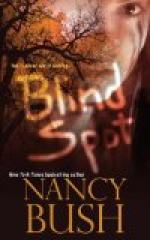“You are going to Oakland?”
It was a chance question.
“No, to Berkeley. I take a train here, I understand. Do all the trains go to Berkeley?”
“By no means. I am going to Berkeley myself. We can ride together. My name is Jerome. Albert Jerome.”
“Thanks. Mine is Avec. Rhamda Avec. I am much obliged. Your company may be instructive.”
He did not say more, but watched with unrestrained interest their manoeuvre into the slip. A moment later they were marching with the others down the gangways to the trains waiting. Just as they were seated and the electric train was pulling out of the pier the sun breaking through the mist blazed with splendid light through the cloud rifts. The stranger was next to the window where he could look out over the water and beyond at the citied shoreline, whose sea of housetops extended and rose to the peaks of the first foothills. The sun was just coming over the mountains.
The detective watched. There was sincerity in the man’s actions. It was not acting. When the light first broke he turned his eyes full into the radiance. It was the act of a child and, so it struck the officer, of the same trust and simplicity—and likewise the same effect. He drew away quickly: for the moment blinded.
“Ah!” he said. “It is so. This is the sun. Your sun is wonderful!”
“Indeed it is,” returned the other. “But rather common. We see it every day. It’s the whole works, but we get used to it. For myself I cannot see anything strange in the ‘sun’s still shining.’ You have been blind, Mr. Avec? Pardon the question. But I must naturally infer. You say you have never seen the sun. I suppose—”
He stopped because of the other’s smile; somehow it seemed a very superior one, as if predicting a wealth of wisdom.
“My dear Mr. Jerome,” he spoke, “I have never been blind in my life. I say it is wonderful! It is glorious and past describing. So is it all, your water, your boats, your ocean. But I see there is one thing even stranger still. It is yourselves. With all your greatness you are only part of your surroundings. Do you know what is your sun?”
“Search me,” returned the officer. “I’m no astronomer. I understand they don’t know themselves. Fire, I suppose, and a hell of a hot one! But there is one thing that I can tell.”
“And this—”
“Is the truth.”
If he meant it for insinuation it was ineffective. The other smiled kindly. In the fine effect of the delicate features, and most of all in the eyes was sincerity. In that face was the mark of genius—he felt it—and of a potent superior intelligence. Most of all did he note the beauty and the soft, silky superlustre of the eyes.
We have the whole thing from Jerome, at least this part of it; and our interest being retrospect is multiplied far above that of the detective. The stranger had a certain call of character and of appearance, not to say magnetism. The officer felt himself almost believing and yet restraining himself into caution of unbelief. It was a remark preposterous on the face of it. What puzzled Jerome was the purpose; he could think of nothing that would necessitate such statements and acting. He was certain that the man was sane.




